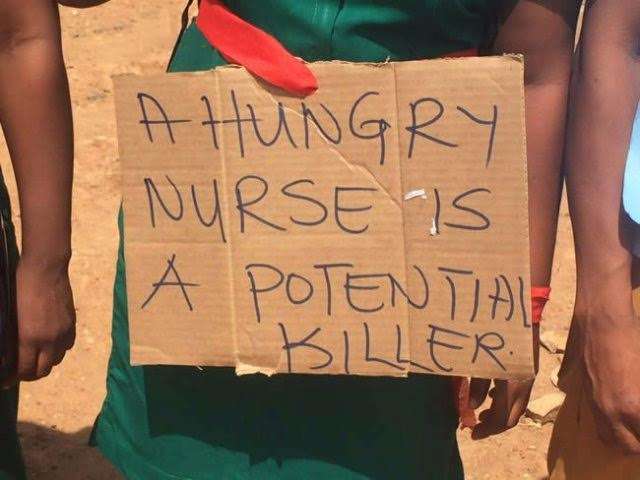The results of the survey showed that Ghanaians wanted the government to tackle unemployment (25.8%) first, followed by poverty (23%) and then the erratic power supply (16.3%) before other issues.
A research undertaken by the Institute of Economic Affairs (IEA) has indicated that unemployment, erratic power supply (Dumsor) and poverty as the three core issues of great importance to Ghanaians ahead of the 2016 elections.
The survey, conducted in 2015, also revealed other problems mentioned in the report but of relatively low priority include poor infrastructure, corruption, low income and salary, quality of education, inadequate supply of portable water, immigration, ethnicity, crime, and the high price of goods and services.
The survey was on ‘The Most Important Problems Confronting Ghana’ and it sampled views of 1500 citizens in all ten regions of the country between November and December 2015.

Unemployed Nurses of Ghana
The results of the survey showed that Ghanaians wanted thegovernment to tackle unemployment (25.8%) first, followed by poverty (23%) and then the erratic power supply (16.3%) before other issues.
The report further indicated that people in the Volta Region (42%), Eastern Region (29%) and Western Region (28%) saw unemployment as an issue that needed government’s urgent attention.
Read also: Volta Region records highest unemployment rate in Ghana
Meanwhile, the five regions in the country saw poverty as an challenge that needs urgent attention. These regions are Central, Brong Ahafo, Northern, Upper West, and Upper East regions. The Ghana Living Standards (GLS) survey of the Ghana Statistics Service corroborates this with their study which indicates that poverty is a rural problem.
The Greater Accra (31.5%) and Ashanti (33%) regions which are mainly urban, with many businesses had the erratic power supply ranking high from the survey.
The study also showed that a greater number of women (26.7%) were concerned about unemployment than their male counterparts (24.4%). The same applied to poverty. But more men (13.4 %) were concerned about corruption than women (7.5%).
The report also indicated that urban dwellers are faced with unemployment issues while poverty was a major challenge facing rural residents. The IEA in a similar report in 2014 revealed that businesses in the country were collapsing. This was because of the poor power supply (dumsor) in the country at that time.
The Institute of Economic Affairs conducts these surveys as a means of promoting effective policy-making by seeking public opinions on happenings in the country.

